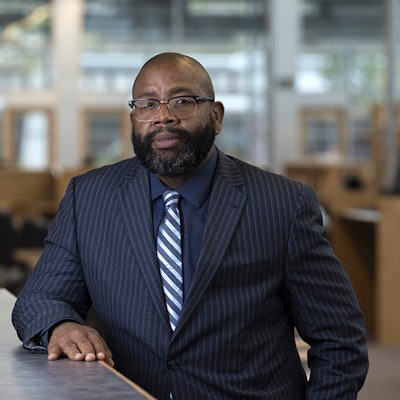Since the beginning of the COVID-19 pandemic, the federal government and higher education institutions have fed the public a steady diet of bad enrollment news. Public health concerns increased responsibilities to care for and educate school-aged children and disrupted jobs and industries. All these factors contribute to recent enrollment declines at institutions of higher education. But we need to look closer at the data. Over half a million – 579,000 to be exact – Black students have left the American higher education system since 2011. Before and during COVID, most of these students vanished from our most affordable and accessible institutions – our community colleges.
Enrollment for Black learners in community colleges is not down because of COVID or because the Black population is shrinking (in fact, it has increased by 2.5 million), and not because individuals left community colleges to attend a four-year college or get jobs paying self-sustaining wages. A new analysis from HCM Strategists refutes these explanations. The precipitous, unrelenting decline in Black community college enrollment since 2011 is the canary in the mine for American higher education. Black learners, like other learners, are not seeing a valuable, welcoming, and career-connected experience in higher education today.  Dr. Keith Curry
Dr. Keith Curry
As an unapologetic community college president, I believe educational leaders must unapologetically focus our institutions on Black learner success and that we can significantly improve the waning college value proposition that cross-partisan majorities of all Americans perceive. Compton College, located in the heart of the nation's second most populous urban area, serves a diverse group of learners from Los Angeles County. Through established business, community, and K-12 partnerships, we support our students in achieving their educational and career goals. Most of Compton's Black students are first-generation and from households where the adults are paid low wages. Compton is an unabashedly proud Black-serving institution.
What do I mean by Black-serving? Being a Black-serving institution means we strive daily to serve all students while unapologetically seeing and valuing the Black learners' experience.
Being Black-serving means we don't boast of programs that serve a finite number of Black students. It means the institution changes how we develop faculty and advise students – where all 6,662 Compton college students benefit. We don't just have a handful of counseling faculty and advisors for the Black students at Compton. All employees see themselves as student success advocates. At our Black-serving institution, the maintenance and operations team, primarily men of color, encourage students to apply for financial aid or recommend grabbing a free meal before heading off campus to work or to class. And while it is true that one in three Black college students nationally lives in poverty, our meal program isn't just for Black students. Every person at Compton College – employees and students alike – can eat for free every day in the cafeteria. We scrutinize data and other student success strategies, so we can make the necessary adjustments to reach more students.
Being Black-serving means that we intentionally build community through our budget-related decisions. If something is important, you prioritize it, and you fund it. As colleges and universities make budget decisions, "race-consciousness" decisions must be made regarding how to serve students best. At Compton, we put all budgets on the table – every small categorical program, every department, every grant – to pay for what works and will reach the largest number of students. This is how Compton dedicated over $3 million in emergency aid specifically for the 2022-2023 fiscal year, with an additional $500,000 in emergency aid for dual enrollment students. It is why we give all students, including dual enrollment students, access to $20 weekly to buy fresh, healthy food at the campus-based, community-led Farmers' Market. It is why we implemented a Guaranteed Income Program for 100 students as a pilot during the 2022-2023 fiscal year, where 65% of the participants are black and 86% are women, and the participants receive $500 per month for six months. It is why we will be the first community college in Los Angeles County to build affordable student housing on our campus. It is why we do more than guarantee our students have high-speed internet and a laptop; it is why we are looking at how we secure internet access in their homes. We want all our students, including our Black learners, to say, "During hard times, Compton College was there for me. They provided help to my family and me when we needed it."
Being Black-serving means, we own that students need a better value proposition. I am not going to beat jobs in the retail and food industry at providing Black learners with a steady wage and health benefits, so I need to offer a different value proposition. I want to hear my students say, "Those people at Compton College are my family," I want them to tell their family members and neighbors about how their education at Compton College helped them to thrive. Black learners in my community – and yours – have options. They make rational choices based on what they perceive is worth their time, money, and effort. We can't reverse the enrollment decline unless we work together collectively to improve the value of a college education.
American higher education, despite its challenges, can unite our commitment to improving lives. Now is the time for all institutions, including community and technical colleges, to strive to be Black-serving institutions. It won't take a radical resolution of our polarized political environment. It will not take new omnibus legislation or a special federal designation. It will take unapologetic leadership to serve Black learners well. With a group of colleagues steeped in knowing what it takes for Black learners to thrive, we will redefine the college value proposition for Black learners. With support from Lumina Foundation, I chair a bi-partisan panel of national leaders from government, business, philanthropy, higher education, and community-based organization and elevate for the nation what shared commitment to Black learner success looks like. Together, we will unapologetically come together next year to deliver on the overdue opportunities Black learners need and deserve.
Dr. Keith Curry is President/CEO of Compton College.



















